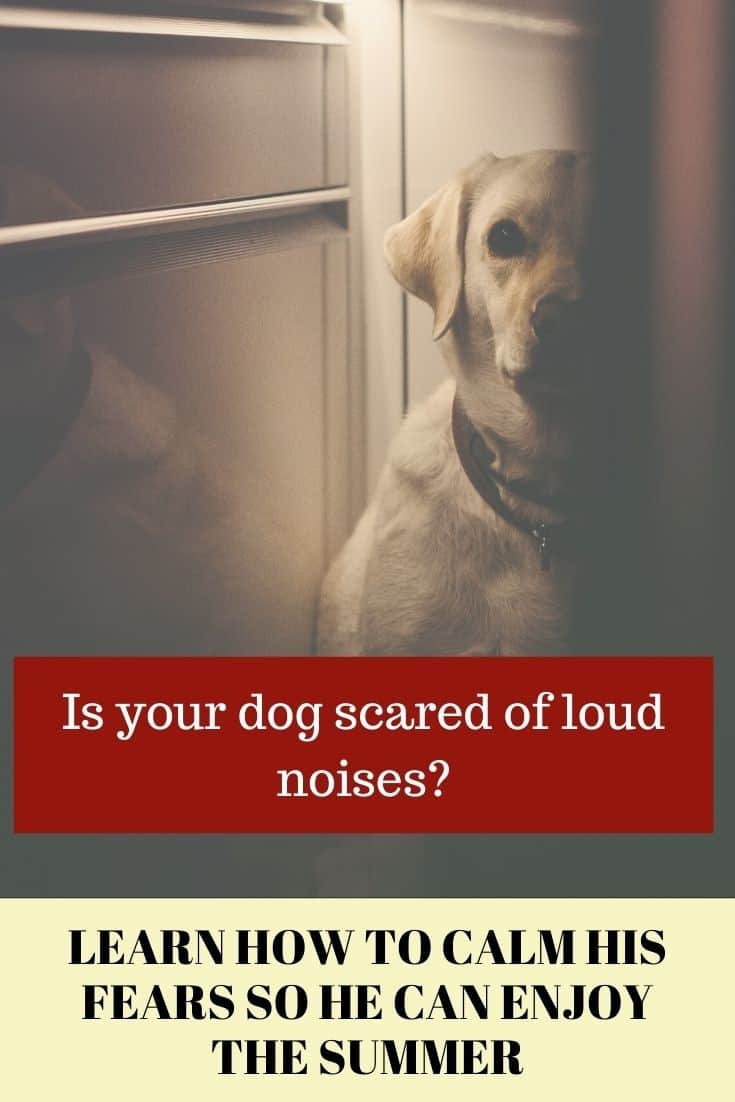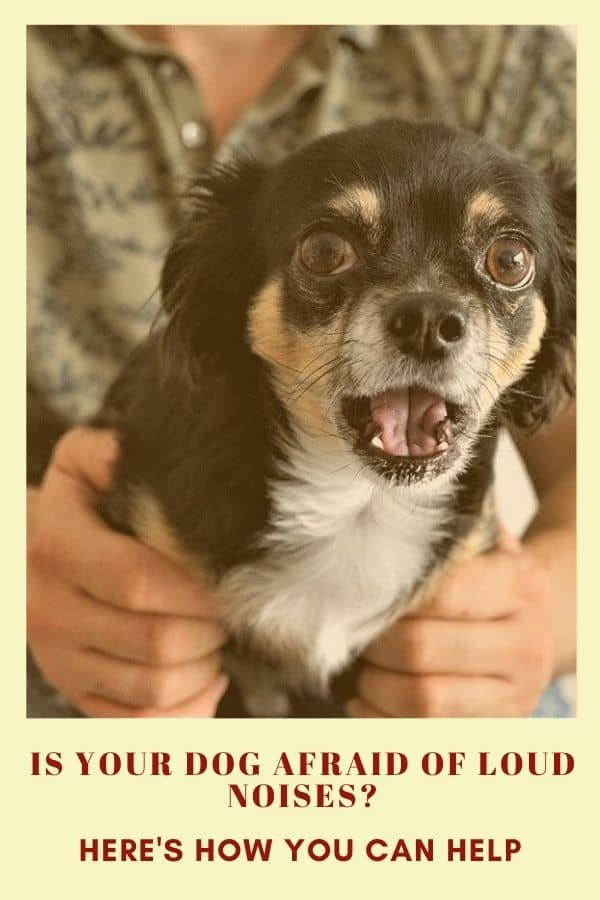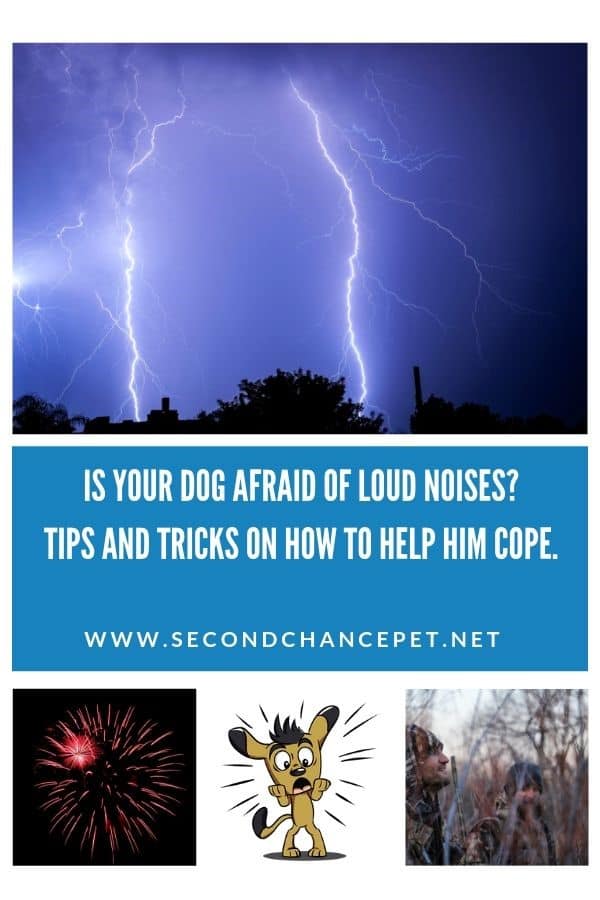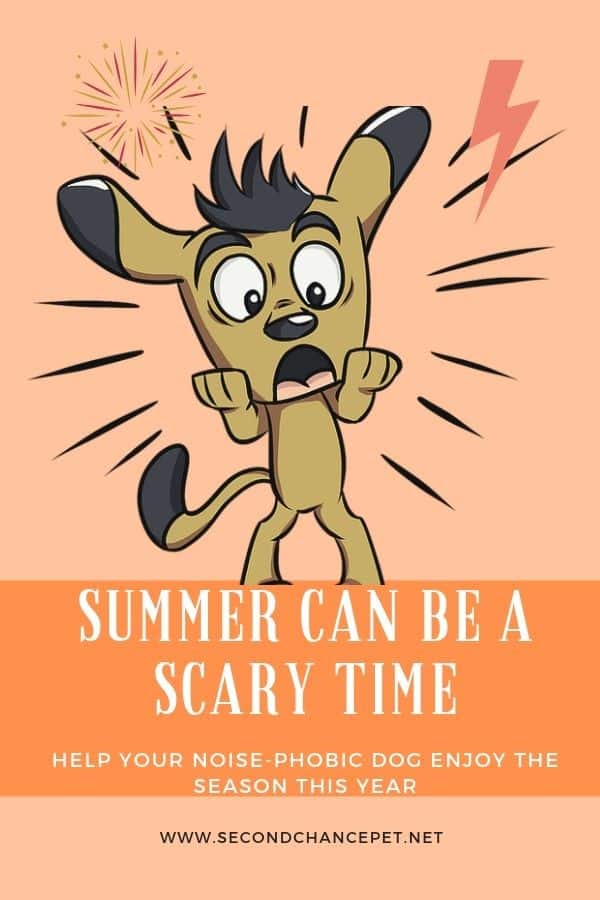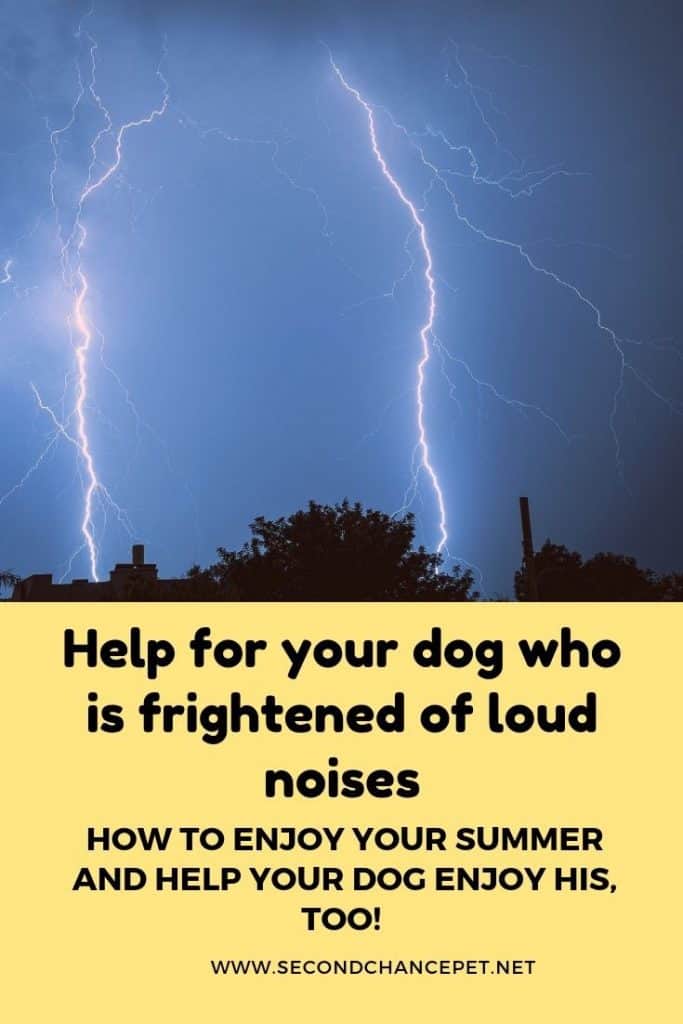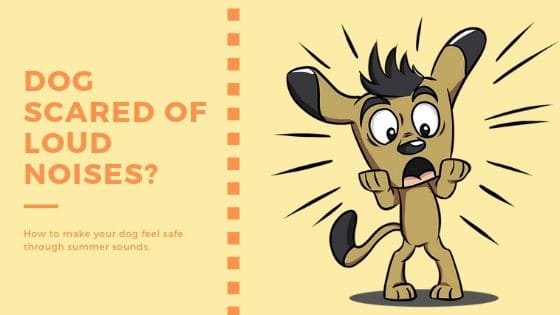
Anyone who has had a number of dogs throughout their lives has had a least one dog afraid of loud noises. And summer is the worst time for these poor animals. Outdoor fun, barbecues, kids out of school. Also, fireworks, thunderstorms, and, if you live in the country like I do, occasional gunshots. All these are torture if your dog is afraid of loud noises. Below are a few ideas on how to cope:
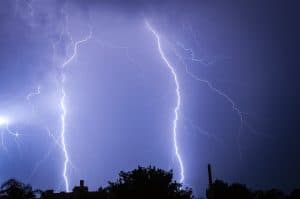
This post contains affiliate links. If you use these links to buy something I may earn a commission, at no additional cost to you. This will help enable me to maintain this website.”
THUNDERSTORMS
- If, as one of mine is, he is destructive, then you will have to crate. My girl was not destructive, although still frightened, until she was bitten by a copperhead. I don’t know whether the deterioration was from fear or a physical cause, but she will now basically tear the house apart trying to escape the storm. Nothing worked, not even the dark corner in the closet that helped for so many years. So, now, with thunderstorms which look as if they’ll last for a while, I put her in a crate. I cover the crate with a blanket, so she can’t see the lightning, making sure to leave a space open at the bottom so it doesn’t get too hot. This keeps her from hurting herself, or damaging the house.
- Your dog may not only be afraid of loud noises, but also of the flashes of lightning. Leave the lights on. Although the sound of the thunder is what starts most dogs shivering, the flashes of light is scary, too. The more inside lights you have on, the less likely your dog will see the flashes.
- Leave the TV or music on. Just as the lights being left on decreases the visibility of flashes, the TV or music helps to drown out the thunder.
AIDS TO CALMING
Medication.
This is somewhat problematic for noise phobias, unless you are willing to make it a daily dose whether it’s likely to thunderstorm or not. I have personally come to the conclusion that I’d prefer to deal with the fear without prescriptions, as I don’t want to fill my dog’s system up with chemicals unless medically necessary. Still, everyone needs to make their own decision here.
Some veterinarians still give Acepromazine (Ace) to dull fear in a dog, but that practice has been shown not only ineffective, but also can actually make the problem worse. Ace is generally used as a sedative prior to anesthesia – used alone it only stops the dog from physically reacting to the fear, not from feeling the fear. Some dogs react well to Prozac, although these are generally the ones who have everyday anxiety as well as noise phobias.
THE THUNDERSHIRT
Some people swear by these compression jackets, some have mixed results. From personal experience, it can help, but it does not completely solve the problem. The good news is that they are relatively inexpensive and well made. There’s absolutely no reason not to try one for your dog.
PHEROMONES
Available as a spray or as a room freshener type of plug-in, these are said to simulate a mother dog’s smell and calm an adult dog. I’ve had very limited results using these, but dogs are all different and they may very well help some.
TRAINING
There are some trainers who work a dog afraid of loud noises using long-range treatments such as counter conditioning and behavior modification. Be aware that these methods require consistent and lifetime reinforcement by the owner. These work well for those who have patience, a lot of time, and can be available most of the time when a thunderstorm is happening.
REASSURANCE
Some trainers will say not to do this for fear of reinforcing the fearful behavior. Where you probably shouldn’t say “good girl” or other phrases of praise, cuddling or petting a dog who comes to you in fear causes no harm. Your dog needs to trust you to help when needed.

FIREWORKS
For most of you, this issue will only last a week or so during the summer. For those who live in a rural area, however, fireworks tend to come out on May 1st and go away on September 1st. It’s a very long summer for us.
Like thunderstorms, fireworks contain both noise and lights. And, like thunderstorms, many of the same methods listed above will work well.
Here are a few tips when it comes to fireworks:
DON’TS
- Never take your dog to a firework show. Even the calmest dog will be upset by the crowds, the smell of gunpowder, and the noise and lights. And a terrified dog is more likely to bite if prevented from following his instinct to run.
- Don’t let your dog outside alone, even in a fenced yard, while fireworks are being used in the area. Local animal control officers dread the 4th of July because of the volume of Lost Dog reports. The lucky ones are taken in by someone and returned to the owner, the unlucky may never return. (Of course, you should never let your dog out alone anyway unless it is in a confined area.)
- Don’t shoot fireworks off on your property. If you become the source of your dog’s fear, trust can be eroded. If you have kids and want to treat them to a firework show, have a neighborhood get-together in the street away from houses with dogs. Then, although your dog will still be frightened, they won’t associate the fear with you.
- Be a considerate neighbor. Enjoy your fireworks the week of July 4th, or for a special occasion. Don’t be that person who lights them up just because they’re fun.
GUNSHOTS
These, too, are loud, but they don’t have the flashes of light that accompany the other two. (If you’re seeing flashes from this, they are WAY too close.)
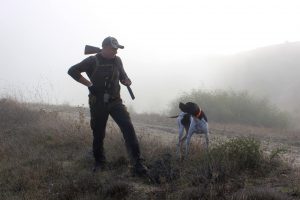
SAFETY TIPS
- Most areas have strict laws as to how close to a residence shots can be fired. If you suspect the shooter is too close, get everyone indoors and away from the windows, and call the police. Not everyone who hunts is a good shot – you don’t want a tragedy due to poor marksmanship.
- Become familiar with the hunting season in your area. If you’re accustomed to taking a walk in the country with your dog, it’s best to avoid the early morning hours at this time. Crashing around in the woods sounds made by you and your dog can easily be taken for the movements of prey. In areas where there is a lot of hunting, it might be best to take your pet somewhere else for her daily walk.
- If you and your dog are out for a walk and hear shots, return home as quickly as you can without panicking the dog. (If you are frightened they will sense this and their fear will be magnified.) A simple cure, once inside, is turning on TV or music. Your dog will quickly forget about the gunshots once they can no longer hear them.
- Of course, if you live in the suburbs or city, you should ALWAYS call the police if hearing gunshots.
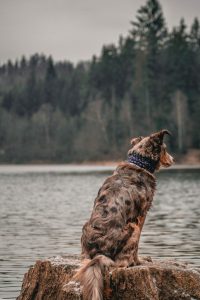
Be aware of the stressors on a dog afraid of loud noises, but don’t let that ruin your summer. Get them out, take them for walks in unfamiliar places, let them meet new people at your backyard barbecue. And when the scary noises happen, use one of the strategies above. The noise will end eventually and your dog will return to normal. And, just maybe, with time and patience, your dog will no longer be afraid of noise.
Have a wonderful summer!
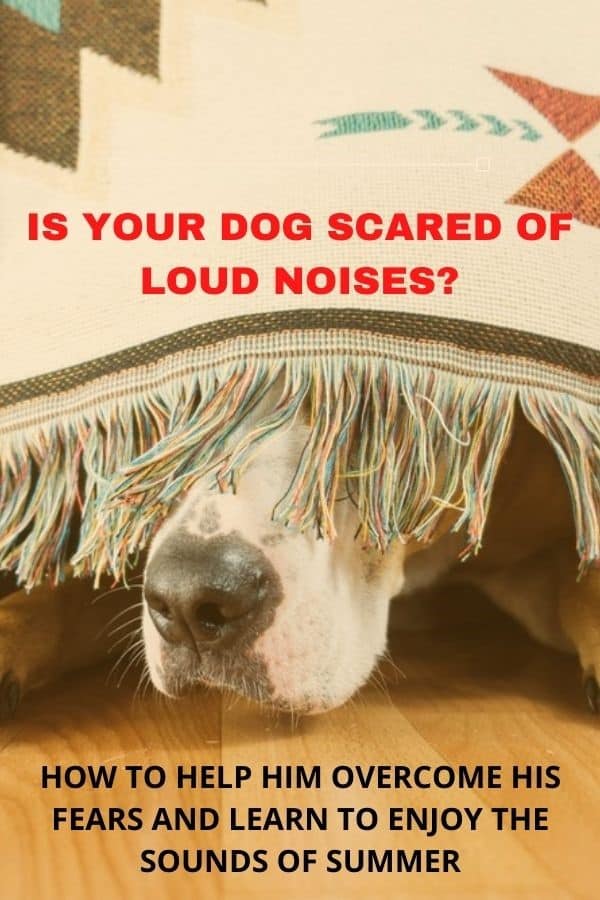
Photo of lightning by Idan Gil on Unsplash
Fireworks photo by Shireah Ragnar on Unsplash
Photo of dog on rock by Sara Kurfeß on Unsplash
Cartoon of scared dog by animatoreman from Pixabay
Photo of hunter and his dog by mohammed OUZZAOUI on Unsplash
Scared long-haired dog Image by Mylene2401 from Pixabay
